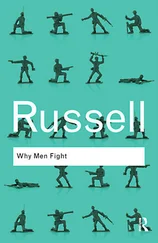Bertrand Russell - In praise of idleness
Здесь есть возможность читать онлайн «Bertrand Russell - In praise of idleness» весь текст электронной книги совершенно бесплатно (целиком полную версию без сокращений). В некоторых случаях можно слушать аудио, скачать через торрент в формате fb2 и присутствует краткое содержание. Жанр: Философия, на английском языке. Описание произведения, (предисловие) а так же отзывы посетителей доступны на портале библиотеки ЛибКат.
- Название:In praise of idleness
- Автор:
- Жанр:
- Год:неизвестен
- ISBN:нет данных
- Рейтинг книги:4 / 5. Голосов: 1
-
Избранное:Добавить в избранное
- Отзывы:
-
Ваша оценка:
- 80
- 1
- 2
- 3
- 4
- 5
In praise of idleness: краткое содержание, описание и аннотация
Предлагаем к чтению аннотацию, описание, краткое содержание или предисловие (зависит от того, что написал сам автор книги «In praise of idleness»). Если вы не нашли необходимую информацию о книге — напишите в комментариях, мы постараемся отыскать её.
In praise of idleness — читать онлайн бесплатно полную книгу (весь текст) целиком
Ниже представлен текст книги, разбитый по страницам. Система сохранения места последней прочитанной страницы, позволяет с удобством читать онлайн бесплатно книгу «In praise of idleness», без необходимости каждый раз заново искать на чём Вы остановились. Поставьте закладку, и сможете в любой момент перейти на страницу, на которой закончили чтение.
Интервал:
Закладка:
Bertrand Russell
In praise of idleness
(1932)
Note : This is a very interesting essay on consumption and work, written a few years before Keynes produced his General Theory. If these ideas of Bertrand Russell had been properly examined, may be we would have been spared, if not the horror of the war, certainly most nonsense that was and is still presented as modern economic thought on work and employment.
Like most of my generation, I was brought up on the saying: "Satan finds some mischief still for idle hands to do." Being a highly virtuous child, I believed all that I was told, and acquired a conscience which has kept me working hard down to the present moment. But although my conscience has controlled my actions, my opinions have undergone a revolution. I think that there is far too much work done in the world, that immense harm is caused by the belief that work is virtuous, and that what needs to be preached in modern industrial countries is quite different from what always has been preached. Everyone knows the story of the traveler in Naples who saw twelve beggars lying in the sun (it was before the days of Mussolini), and offered a lira to the laziest of them. Eleven of them jumped up to claim it, so he gave it to the twelfth. This traveler was on the right lines. But in countries which do not enjoy Mediterranean sunshine idleness is more difficult, and a great public propaganda will be required to inaugurate it. I hope that, after reading the following pages, the leaders of the Y.M.C.A. will start a campaign to induce good young men to do nothing. If so, I shall not have lived in vain.
Before advancing my own arguments for laziness, I must dispose of one which I cannot accept. Whenever a person who already has enough to live on proposes to engage in some everyday kind of job, such as schoolteaching or typing, he or she is told that such conduct takes the bread out of other people's mouths, and is therefore wicked. If this argument were valid, it would only be necessary for us all to be idle in order that we should all have our mouths full of bread. What people who say such things forget is that what a man earns he usually spends, and in spending he gives employment. As long as a man spends his income, he puts just as much bread into people's mouths in spending as he takes out of other people's mouths in earning. The real villain, from this point of view, is the man who saves. If he merely puts his savings in a stocking, like the proverbial French peasant, it is obvious that they do not give employment. If he invests his savings, the matter is less obvious, and different cases arise. One of the commonest things to do with savings is to lend them to some Government. In view of the fact that the bulk of the public expenditure of most civilized Governments consists in payment for past wars or preparation for future wars, the man who lends his money to a Government is in the same position as the bad men in Shakespeare who hire murderers. The net result of the man's economical habits is to increase the armed forces of the State to which he lends his savings. Obviously it would be better if he spent the money, even if he spent it in drink or gambling.
But, I shall be told, the case is quite different when savings are invested in industrial enterprises. When such enterprises succeed, and produce something useful, this may be conceded. In these days, however, no one will deny that most enterprises fail. That means that a large amount of human labor, which might have been devoted to producing something that could be enjoyed, was expended on producing machines which, when produced, lay idle and did no good to anyone. The man who invests his savings in a concern that goes bankrupt is therefore injuring others as well as himself. If he spent his money, say, in giving parties for his friends, they (we may hope) would get pleasure, and so would all those upon whom he spent money, such as the butcher, the baker, and the bootlegger. But if he spends it (let us say) upon laying down rails for surface cars in some place where surface cars turn out to be not wanted, he has diverted a mass of labor into channels where it gives pleasure to no one. Nevertheless, when he becomes poor through the failure of his investment he will be regarded as a victim of undeserved misfortune, whereas the gay spendthrift, who has spent his money philanthropically, will be despised as a fool and a frivolous person.
All this is only preliminary. I want to say, in all seriousness, that a great deal of harm is being done in the modern world by belief in the virtuousness of work, and that the road to happiness and prosperity lies in an organized diminution of work. First of all: what is work? Work is of two kinds: first, altering the position of matter at or near the earth's surface relatively to other such matter; second, telling other people to do so. The first kind is unpleasant and ill paid; the second is pleasant and highly paid. The second kind is capable of indefinite extension: there are not only those who give orders, but those who give advice as to what orders should be given. Usually two opposite kinds of advice are given simultaneously by two organized bodies of men; this is called politics. The skill required for this kind of work is not knowledge of the subjects as to which advice is given, but knowledge of the art of persuasive speaking and writing, i.e., of advertising.
Throughout Europe, though not in America, there is a third class of men, more respected than either of the classes of workers. There are men who, through ownership of land, are able to make others pay for the privilege of being allowed to exist and to work. These landowners are idle, and I might therefore be expected to praise them. Unfortunately, their idleness is only rendered possible by the industry of others; indeed their desire for comfortable idleness is historically the source of the whole gospel of work. The last thing they have ever wished is that others should follow their example.
From the beginning of civilization until the Industrial Revolution, a man could, as a rule, produce by hard work little more than was required for the subsistence of himself and his family, although his wife worked at least as hard as he did, and his children added their labor as soon as they were old enough to do so. The small surplus above bare necessaries was not left to those who produced it, but was appropriated by warriors and priests. In times of famine there was no surplus; the warriors and priests, however, still secured as much as at other times, with the result that many of the workers died of hunger. This system persisted in Russia until 1917 (since then, members of the Communist Party have succeeded to this privilege of the warriors and priests) and still persists in the East; in England, in spite of the Industrial Revolution, it remained in full force throughout the Napoleonic wars, and until a hundred years ago, when the new class of manufacturers acquired power. In America, the system came to an end with the Revolution, except in the South, where it persisted until the Civil War. A system which lasted so long and ended so recently has naturally left a profound impress upon men's thoughts and opinions. Much that we take for granted about the desirability of work is derived from this system, and, being pre-industrial, is not adapted to the modern world. Modern technique has made it possible for leisure, within limits, to be not the prerogative of small privileged classes, but a right evenly distributed throughout the community. The morality of work is the morality of slaves, and the modern world has no need of slavery.
It is obvious that, in primitive communities, peasants, left to themselves, would not have parted with the slender surplus upon which the warriors and priests subsisted, but would have either produced less or consumed more.
Читать дальшеИнтервал:
Закладка:
Похожие книги на «In praise of idleness»
Представляем Вашему вниманию похожие книги на «In praise of idleness» списком для выбора. Мы отобрали схожую по названию и смыслу литературу в надежде предоставить читателям больше вариантов отыскать новые, интересные, ещё непрочитанные произведения.
Обсуждение, отзывы о книге «In praise of idleness» и просто собственные мнения читателей. Оставьте ваши комментарии, напишите, что Вы думаете о произведении, его смысле или главных героях. Укажите что конкретно понравилось, а что нет, и почему Вы так считаете.












